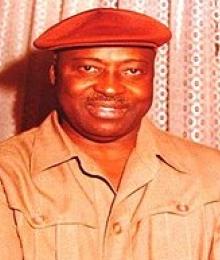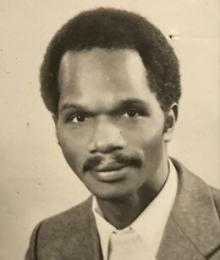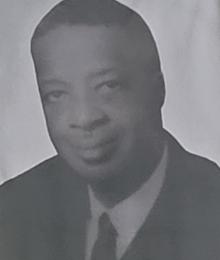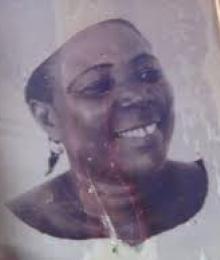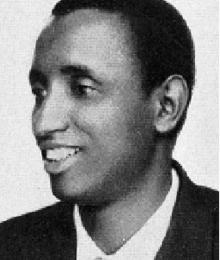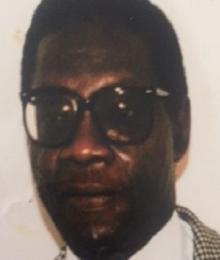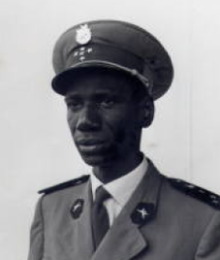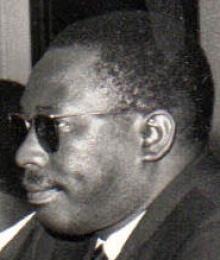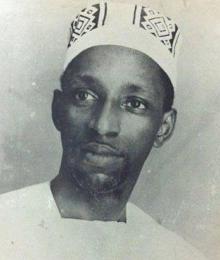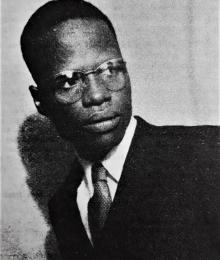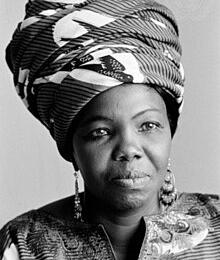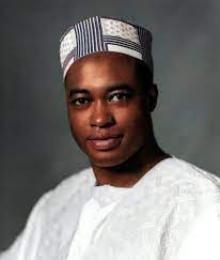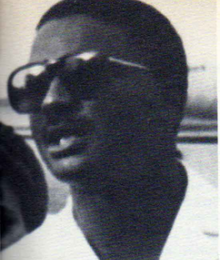
Siaka Touré was a prominent and controversial figure in 20th-century Guinean political history. Born in 1935 in Kankan and deceased in 1985 in Kindia, he was the half-brother of President Ahmed Sékou Touré and a descendant of Samory Touré. A military officer by training, Siaka Touré held several important ministerial positions in the post-independence Guinean government, including Public Works, Transport, and Economic Development.
However, he is best known for his role as commander of the infamous Camp Boiro in Conakry, where many political opponents were detained, tortured, and executed under Sékou Touré's authoritarian regime. After the latter's death in 1984, Siaka Touré was imprisoned by the new military regime and executed in 1985 following an attempted coup, thus marking the end of a tumultuous era in Guinean history.
Introduction
Siaka Touré, born in 1935 in Kankan and passed away in July 1985 in Kindia, was a prominent and controversial figure in Guinea's political history. A military officer and politician, he is primarily known for his role as commander of the infamous Camp Boiro in Conakry under the authoritarian regime of his half-brother, President Ahmed Sékou Touré. His career, which combined both military and political paths, reflects the complexities and challenges of post-independence Guinea.
Education
Born in the historic city of Kankan in Upper Guinea, Siaka Touré received an international education that shaped his worldview and future career. He pursued higher education in Paris, France, where he gained a deep understanding of Western culture and institutions. He later completed his studies in Moscow, Soviet Union, where he was exposed to socialist ideologies that heavily influenced Guinea's post-independence policies.
This dual education, both Western and Soviet, gave Siaka Touré a unique perspective on the geopolitical issues of the time, making him a valuable asset to the regime of his half-brother, Ahmed Sékou Touré.
Professional Career
Siaka Touré's professional career was primarily defined by his military service. He rose quickly through the ranks of the Guinean army, likely benefiting from his family ties to the president. His military training, combined with his international education, made him a key figure in the consolidation of Ahmed Sékou Touré's power.
However, it was his role as the commander of Camp Boiro that most defined his professional trajectory. Under his command, this detention camp in Conakry became a symbol of political repression in Guinea. Siaka Touré held complete control, deciding the fate of numerous political opponents and presumed enemies of the regime.
Political Career
Siaka Touré's political career began early. In 1956, at the age of 21, he was elected municipal councilor of his hometown, Kankan. This initial foray into local politics served as a springboard for more prominent national responsibilities.
Soon after, he was elected as the representative of Faranah in the territorial assembly, expanding his political influence beyond his home region. This rapid rise illustrates his political ambition and ability to navigate the corridors of power—skills that would prove crucial in the years to come.
Ministerial Positions
Siaka Touré’s ministerial career was varied and influential:
- From 1957 to 1958, he served as Minister of Public Works in the transitional council leading toward independence.
- From 1958 to 1963, he held multiple portfolios, including Public Works, Transport, and Communications.
- Between January 1963 and January 1964, he was appointed Minister of Economy, Public Works, Industry, Energy, and Urbanism.
- From November 1964 to January 1968, he served as Minister of Economic Development.
- Starting in January 1968, he became Minister of Economic Development, Agriculture, Industry, and Mines.
These successive appointments to key positions demonstrated the regime's trust in him and his importance in implementing Guinea's post-independence economic and development policies.
A pivotal moment in his political career came in February 1969, following the government's announcement of the Labé plot. Siaka Touré was appointed a member of the revolutionary committee, a triumvirate composed of President Ahmed Sékou Touré, General Lansana Diané (Minister of Defense), and Siaka himself. This position placed him at the core of the regime’s decision-making process.
Death
Siaka Touré's downfall was as swift as his meteoric rise. After President Ahmed Sékou Touré's death in March 1984, the new military regime led by Lansana Conté took power. Siaka Touré, as a symbol of the former regime, was immediately imprisoned.
His fate was sealed in July 1985, following a failed coup attempt led by Diarra Traoré. Although his involvement in the coup was never clearly established, Siaka Touré was executed alongside other key figures of the former regime, including Ismaël Touré, Mamadi Keïta, and Moussa Diakité. His death marked the definitive end of an era in Guinea’s history.
Private Life
Little is known about Siaka Touré's private life. However, it is known that he was the half-brother of President Ahmed Sékou Touré, which partly explains his rapid rise to power. This family connection also made him a descendant of Samory Touré, a historical figure of resistance against French colonialism in West Africa.
Siaka Touré was known for his taste for luxury, particularly his collection of cars, which he reportedly amassed by confiscating vehicles at will, imprisoning those who dared to protest against these practices.
Conclusion
Siaka Touré’s life reflects the turbulence and contradictions of post-independence Guinea. As a powerful politician and feared military officer, he was both a key figure in the country’s development and an instrument of political repression. His career, from his promising beginnings as a young municipal councilor to his tragic end, illustrates the challenges and dangers of wielding power in an authoritarian regime.
Siaka Touré’s career raises important questions about the role of familial ties in politics, the abuse of power, and the long-term consequences of political repression. His legacy remains controversial in Guinea, where his name evokes both a period of national development and political terror.
The story of Siaka Touré continues to captivate historians and political analysts, offering unique insights into the dynamics of power in post-colonial Africa. His career remains a relevant subject of study for understanding the challenges of nation-building and governance in West Africa.











